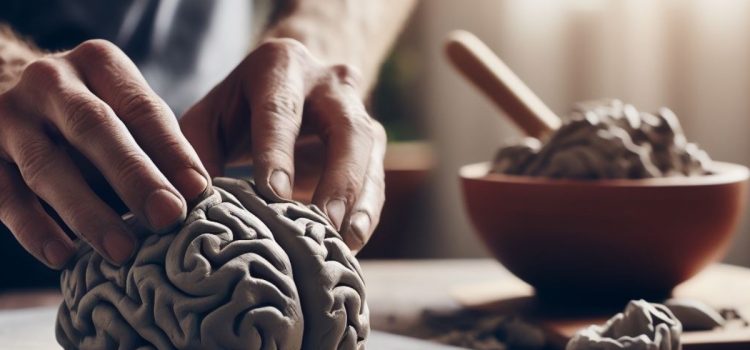

This article is an excerpt from the Shortform guide to "Huberman Lab". Shortform has the world's best summaries and analyses of books, podcasts, and more.
Like this article? Sign up for a free trial here.
How does neuroplasticity affect a person’s mental health? Can psychedelics be used as a form of treatment for mental illnesses?
Dr. Andrew Huberman is a neuroscientist and podcaster who advocates for a better understanding of mental health. He suggests that to support mental health, people should look toward leveraging neuroplasticity.
Keep reading to learn more about Huberman’s neuroplasticity recommendations from his podcast, Huberman Lab.
Understanding and Leveraging Neuroplasticity
Andrew Huberman’s neuroplasticity methods highlight the significance of brain receptors in interactions with substances like MDMA and psilocybin to foster mental adaptability. While discussing the psychotherapeutic potential of these psychedelics, particularly in PTSD treatment, he underscores the need for professional guidance due to associated risks for individuals with heart conditions.
He strongly advises against administering such substances to children, proposing musical education as a safer alternative to develop brain interconnectivity.
Utilizing Neuromodulators for Mental Health
By referencing diversified treatments for depression, such as bupropion which targets dopamine and epinephrine, Huberman illustrates the complexity of addressing the condition. He emphasizes that synaptic modulation by neuromodulators plays a crucial role in neuroplasticity and explained that talk therapy, specific breathwork, and the responsible use of psychedelics such as psilocybin and MDMA can catalyze neuroplastic changes, offering a broad perspective on the pathways to enhancing mental health.
Looking Deeper Into Neuroplasticity
Neuroplasticity, the brain’s remarkable ability to reorganize and form new neural connections throughout a person’s life, lies at the heart of understanding the topics explored in this article. It is a fundamental process that allows the brain to adapt and change in response to various factors such as learning, environmental influences, and even psychological stress. This plasticity ranges from individual neuron pathways making new connections to larger-scale adjustments like cortical remapping or neural oscillation. While neuroplasticity was once believed to be limited to childhood, research has shown that many aspects of the brain can undergo plastic changes even in adulthood. However, it is important to note that the developing brain exhibits a higher degree of plasticity than the adult brain.
The article delves into several themes related to neuroplasticity and mental well-being. One theme explores the psychotherapeutic potential of psychedelics such as MDMA (ecstasy) and psilocybin (found in certain mushrooms). These substances have shown promise in facilitating transformative experiences that can lead to profound shifts in perception and emotional processing. However, caution must be exercised when considering their use due to potential risks and legal restrictions. Another theme emphasizes the importance of professional guidance when exploring substances or alternative methods for enhancing neuroplasticity. The expertise of trained therapists or medical professionals is crucial for ensuring safe and effective outcomes.
Furthermore, this article highlights alternative approaches for promoting neuroplasticity beyond substance use. Talk therapy, which involves verbal communication between a therapist and patient, has long been recognized as an effective method for addressing mental health concerns by fostering self-reflection and insight. Additionally, breathwork techniques involving conscious control of breathing patterns are gaining attention for their potential therapeutic benefits on mental well-being.

———End of Preview———
Like what you just read? Read the rest of the world's best guides to Huberman Lab" at Shortform.
Here's what you'll find in our full Huberman Lab episode summaries:
- How science can be applied to improve your daily life
- Information about key scientific tools and how they impact society
- How technology, biology, and health are connected






